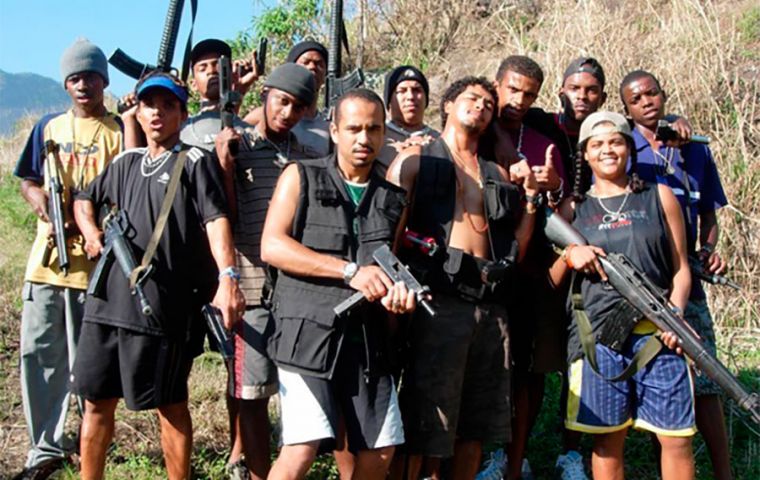MercoPress. South Atlantic News Agency
Brazilian drug gang goes global, The Economist reports
 Gakiya said he was targeted by the PCC
Gakiya said he was targeted by the PCC According to an article in The Economist last week, Brazil's largest drug gang now has links throughout Europe. The First Capital Command (PCC), a gang officially born after a deadly football match between prison inmates in São Paulo in August 1993, has grown to some 40,000 life members and another 60,000 “contractors,” which would make it one of the world's largest criminal groups.
The PCC first formed an alliance with Bolivian cocaine traffickers in Santa Cruz, which they called “Narcosur.” The PCC has a separate relationship with Venezuela's Tren de Aragua, which is also involved in human trafficking.
In recent years, the PCC has focused on its European connections. Portugal's security services say the group has 1,000 associates in Lisbon alone.
“PCC used to buy coke wholesale in Bolivia for US$ 1,500 a kilo, put it on a ship in a Brazilian port, and resell it for US$ 8,000 a kilo. By setting up a base in Europe, members can sell that kilogram for more than US$ 30,000,” The Economist said.
The publication also reported that the PCC is present in several European countries, including Britain. According to São Paulo organized crime prosecutor Lincoln Gakiya, the gang controls more than 50% of Brazil's drug exports, mainly through a partnership with the Italian 'Ndrangheta, Europe's largest mafia, whose brokers are regularly arrested in Brazil.
The PCC is also expanding into West Africa, says The Economist, citing a recent report by the Swiss-based Global Initiative against Transnational Organized Crime.
PCC gangsters even control neighborhoods in Lagos and Abuja, Nigeria, “just as they do in São Paulo,” says Christian Azevedo of the Brazilian Federal Police. The Nigerian connection is a springboard to South Africa, from where they send coke to India and China.
InSight Crime's Steven Dudley also explained that the PCC is about territorial control, particularly in the favelas (slums), FARC-style.
Finally, the PCC is said to be expanding into politics. Gakiya said the Attorney General's Office in the state of São Paulo has investigated mayors and councilors and found PCC involvement in everything from garbage collection and public transportation to construction projects and hotels.
(Source: The Economist)




Top Comments
Disclaimer & comment rulesCommenting for this story is now closed.
If you have a Facebook account, become a fan and comment on our Facebook Page!